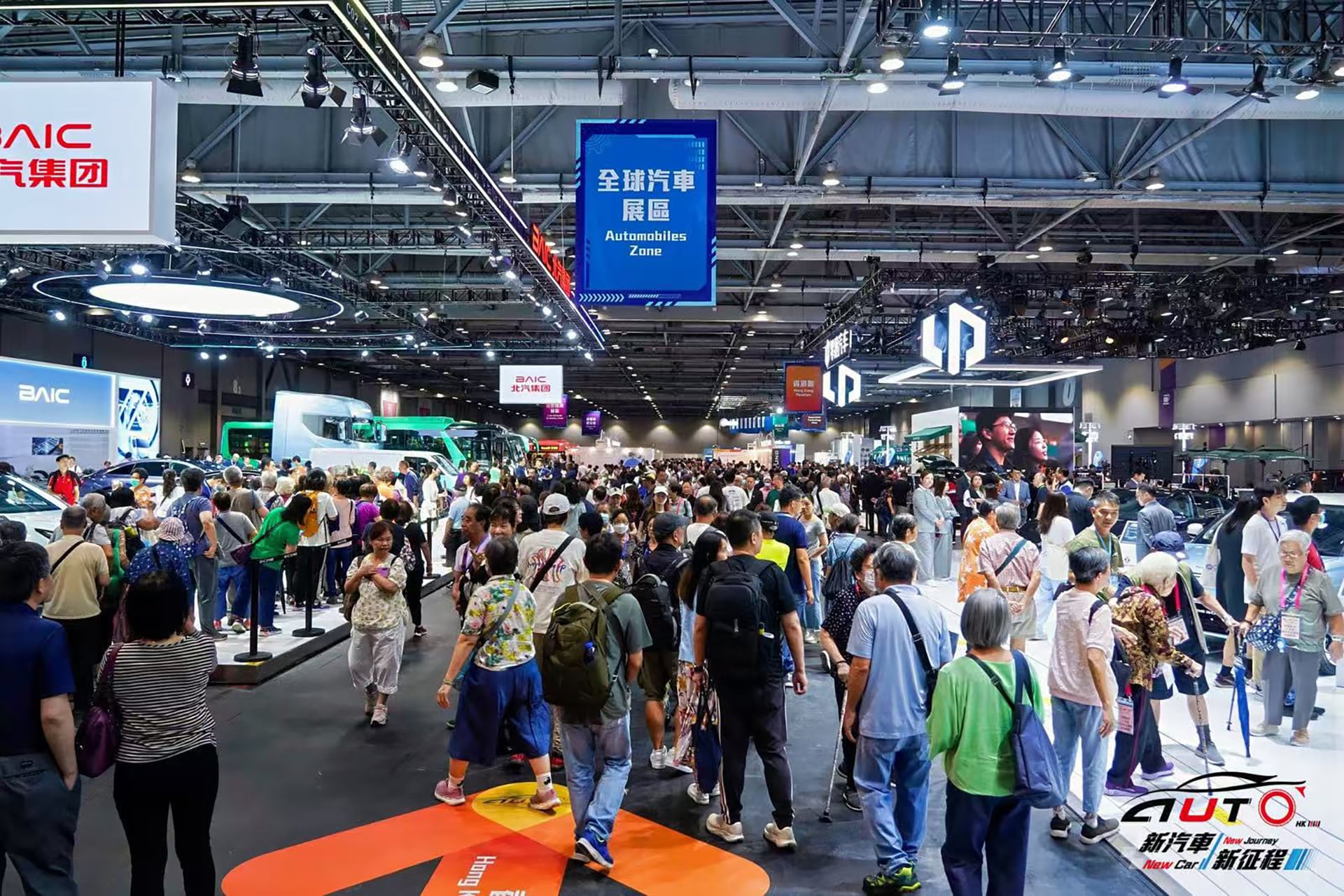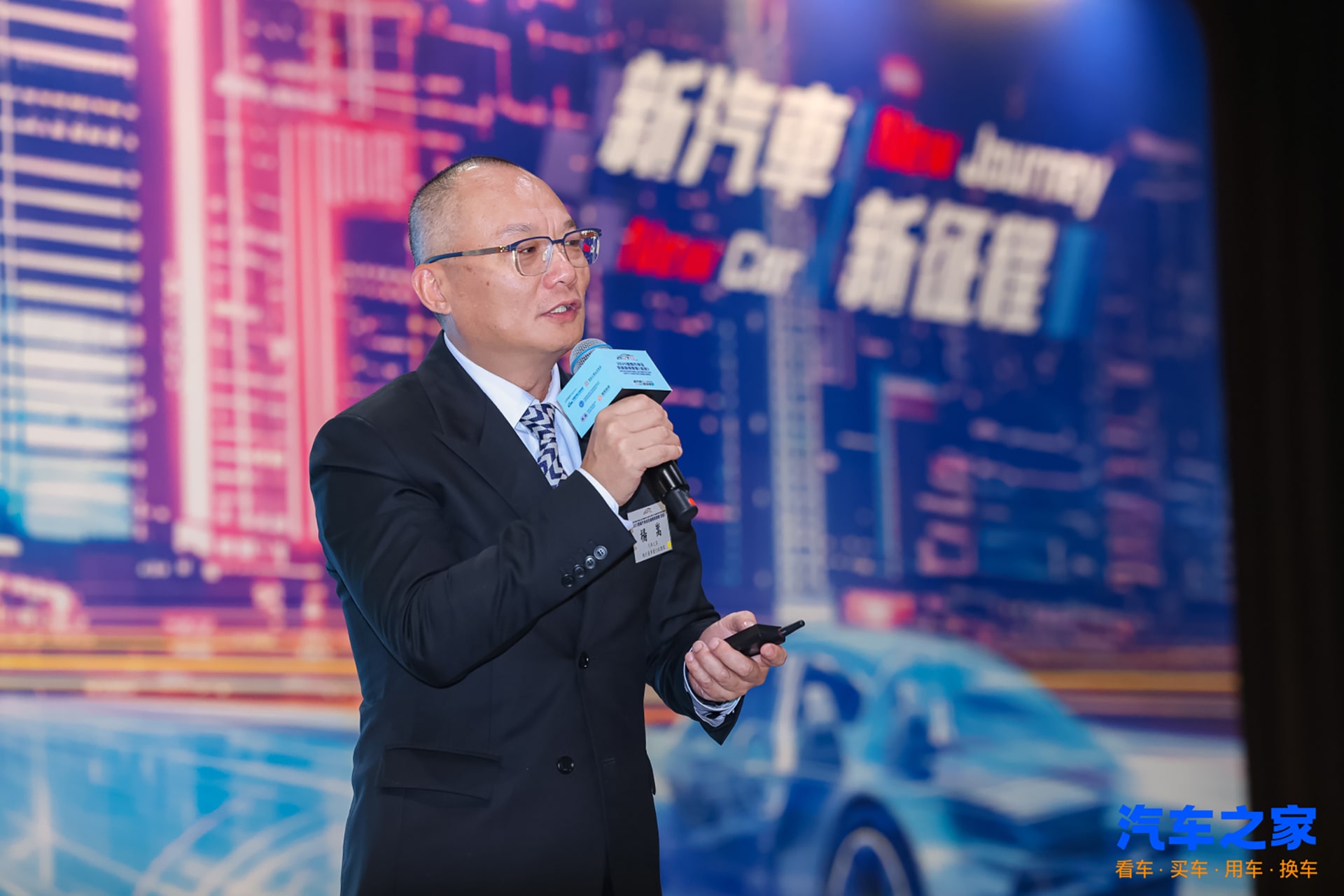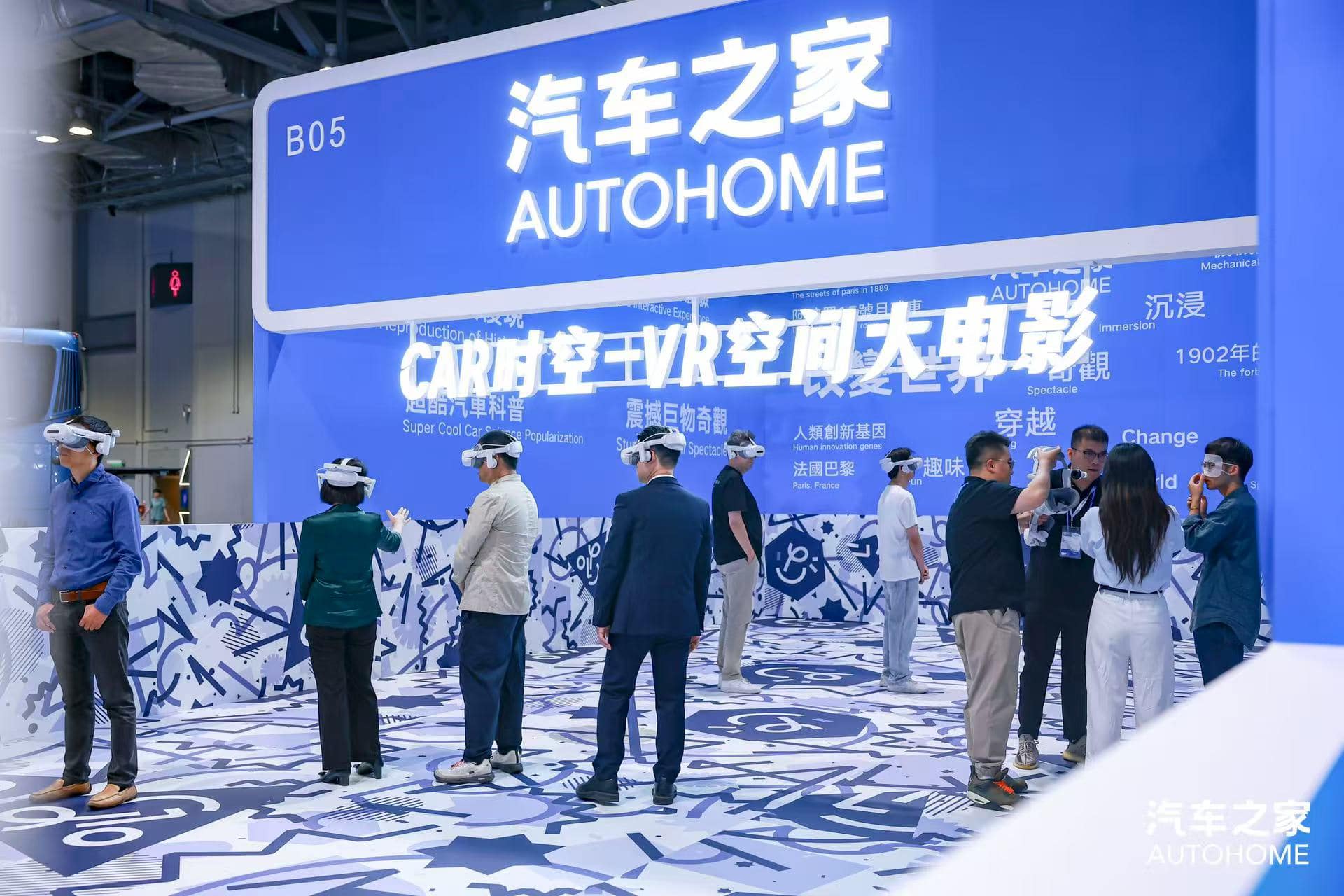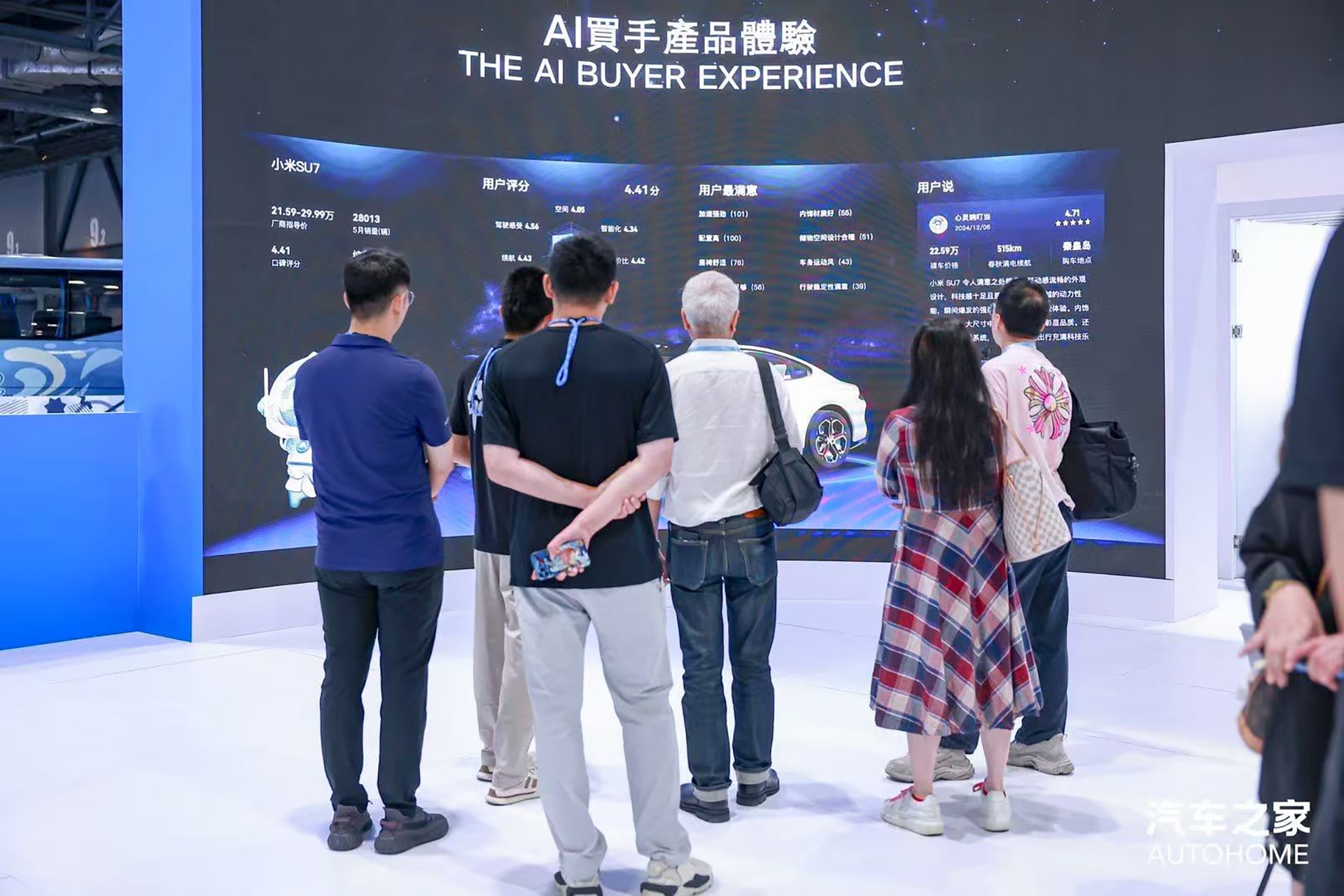Artificial intelligence is reshaping the automotive retail landscape, and Autohome is among the companies positioning themselves at the center of this transformation. That intent was clear at the 2025 International Automotive and Supply Chain Expo, held from June 12–15 at AsiaWorld-Expo in Hong Kong.
Autohome participated alongside a wide range of companies from across mainland China, covering segments including vehicles, parts, smart cabins, assisted driving technology, and electrification. Major automakers such as BYD, Geely, Chery, SAIC Motor, and Xpeng Motors took part, as did supply chain technology firms like Contemporary Amperex Technology (CATL), Momenta, Horizon Robotics, and Baidu’s Apollo unit.

AI is reshaping the car buying journey
At the expo, Autohome introduced a series of AI-powered tools designed to streamline how consumers research and buy cars. Leading the showcase was its virtual sales assistant, Jiajia, which provides car model recommendations, feature comparisons using interactive 3D visuals, user reviews, and financing options. Developed to emulate the expertise of a seasoned salesperson, Jiajia drew notable interest from attendees.
The assistant is powered by Autohome’s proprietary Cangjie large language model and a dataset compiled over two decades, including information on car specifications, components, consumer feedback, and third-party evaluations. Jiajia is already integrated into Autohome’s app and its Autohome Space locations in China, and is described by CEO Yang Song as the most accurate and comprehensive AI tool for car-related queries currently available.

To further develop its AI capabilities, Autohome’s Space showrooms also function as experience centers. These locations collect real-time driving data during test drives to assess autonomous driving performance, tracking metrics such as speed, braking smoothness, steering stability, and disengagement frequency. Users receive detailed comparative reports, while the company gathers insights to inform localization and after-sales strategies.
Autohome plans to open its first international Space location in Hong Kong, though an official launch date has not yet been confirmed.
In parallel, Autohome has introduced a test-drive comparison engine that evaluates driving behavior and produces performance reports. According to Yang, such tools aim to bring consistency and clarity to a buying journey often influenced by intuition or subjective advice.
Expanding beyond driving metrics, the company is also experimenting with new retail formats. At the expo, it debuted a virtual reality cinema exhibit exploring more than a century of global automotive innovation, spanning from early electric vehicles in the 19th century to next-generation propulsion technologies. Autohome said this immersive feature will be included in future Space locations to engage visitors through education and storytelling.

Behind the scenes, Autohome has built a suite of AI-powered solutions for industry partners. These include a marketing dashboard to refine sales strategies, a content automation tool for lead generation, and a resale value estimator for used vehicles. Collectively, these offerings signal Autohome’s shift from a consumer platform to a full-spectrum technology provider for the automotive sector.

From content platform to ecosystem enabler
This technological push aligns with Autohome’s broader goal of supporting Chinese automakers expanding overseas. On June 30, it will launch an English-language website featuring export-ready models from Chinese brands. The platform will provide detailed specifications, pricing, and dealership links where available.
According to Yang, the new site is intended to close an information gap faced by international buyers unfamiliar with Chinese cars. During remarks at the expo, he described the initiative as part of a long-term effort to build both online and offline infrastructure to support global expansion.
Looking ahead, Autohome intends to enter markets across Southeast Asia, Latin America, the Middle East, and Europe. It aims to support automakers not only with sales and marketing but also with logistics, spare parts, and after-sales services. “Selling a car is only the beginning,” Yang said. “The real challenge lies in spare parts, maintenance, and market-level scale.”
“A relay race for the entire ecosystem”
These moves reflect a broader shift in China’s automotive strategy. Rather than focusing solely on exporting products, companies are increasingly aiming to deliver integrated capabilities spanning logistics, services, and full-cycle support. Yang described this transition as one from “single product exports” to “integrated industry exports,” noting that sustained global expansion will depend on operational readiness and close coordination across borders.
Autohome’s own trajectory mirrors that evolution. Once known primarily as a content platform, it now offers a suite of tools for automakers, dealers, and secondhand platforms. Its AI-driven systems help partners lower costs and improve efficiency across multiple functions.
This transformation is taking place as China cements its status as a global automotive heavyweight. In 2024, it became the world’s largest car exporter, shipping 6.41 million units, up 23% from the previous year. Yang also noted that China now produces more than 60% of the world’s EV batteries and holds 43% of global patents in autonomous driving, crediting these gains to long-term investment and supply chain optimization over the past two decades.
For him, the industry’s momentum is not the result of sudden breakthroughs, but of long-term work by engineers and entrepreneurs across the ecosystem. “This isn’t a sprint by one automaker,” Yang said. “It’s a relay race for the entire ecosystem.” In this race, Autohome is betting that its platform can help carry the baton.
This article was written in partnership with Autohome.
